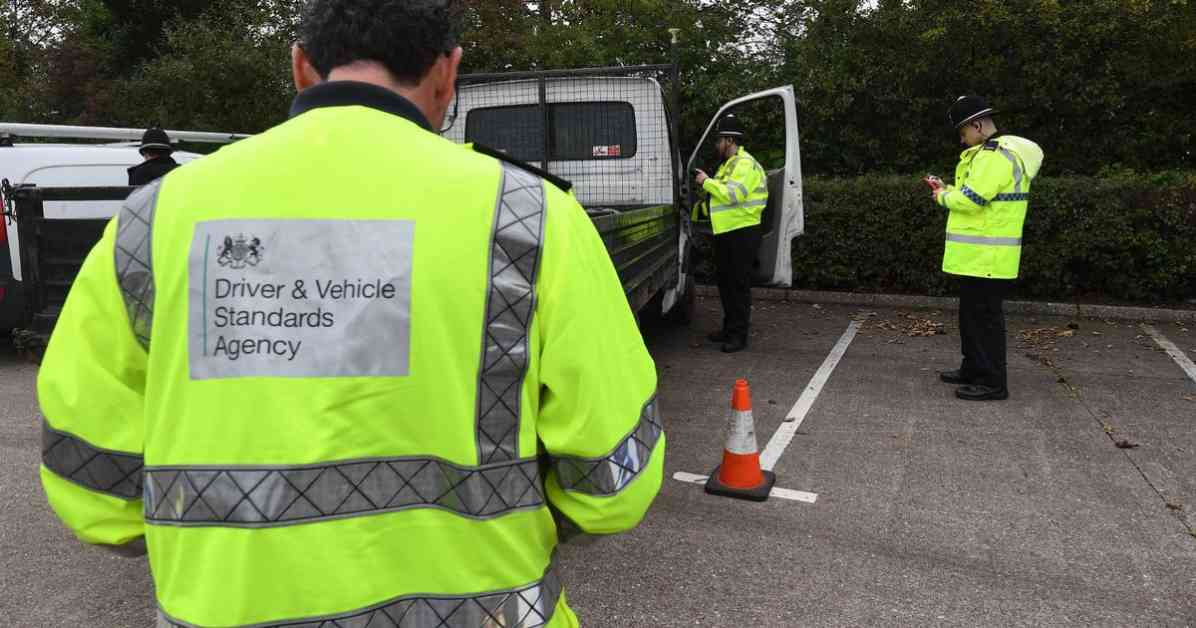The Driver and Vehicle Licensing Agency (DVLA) has issued a stern warning to drivers who fail to update four key documents, stating that they could face fines of up to £1,000 for non-compliance. This move comes as a response to the increasing number of errors in crucial paperwork, which can have serious repercussions for motorists.
Address updates are more than just a matter of compliance, according to Motor Match. In the event of an accident, having accurate address details on file ensures that essential information reaches the right individuals promptly, expediting necessary processes and potentially saving lives. Therefore, it is crucial for drivers to keep their address details up to date not only for their driving licence but also for their vehicle log book, vehicle tax direct debit, and any private number plate documentation.
At Motor Match, the safety and convenience of customers are of utmost importance. The company emphasizes the significance of maintaining accurate address details to avoid fines and uphold the integrity of vehicle-related paperwork. Being vigilant in this regard is an essential aspect of being a responsible and law-abiding driver.
Appeals process for fines related to vehicle offences such as failing to tax or insure the vehicle, or neglecting to inform the DVLA about a change of vehicle ownership, is available to drivers. If a driver can demonstrate that they had valid tax or insurance at the time of the offence, or had already notified the DVLA about the change of ownership, their challenge may be accepted by the agency. It is important to provide evidence, such as an acknowledgment letter from the DVLA, dated prior to the offence.
However, there are certain situations where drivers will not be able to appeal fines. This includes instances where a driver failed to inform the DVLA of a change in address, misplaced their documents, did not receive a reminder from the DVLA, forgot or were absent when required to tax, insure, or register the vehicle as off the road (SORN), or missed a Direct Debit payment due to bank issues. In these cases, drivers must accept the consequences of their oversight.
Importance of Updating Address Details
Keeping address details up to date with the DVLA is crucial for various reasons. In addition to compliance with legal requirements, accurate address information ensures that important correspondence, such as driving licence renewals or vehicle tax reminders, reaches the driver in a timely manner. Failure to update address details can result in missed communications, which may lead to penalties, fines, or other legal complications.
Moreover, in the event of an accident or emergency situation, having current address details on file can expedite the process of contacting the driver or their designated contacts. This can be critical in situations where timely communication is essential for ensuring the safety and well-being of those involved.
Consequences of Non-Compliance
The DVLA’s warning of fines up to £1,000 for drivers who neglect to update essential documents serves as a stark reminder of the consequences of non-compliance. Failing to keep address details current can lead to penalties and legal issues that could have been easily avoided with timely updates.
In addition to financial penalties, drivers who do not update their address details may face challenges in dealing with administrative tasks related to their vehicles. For example, if a driver’s vehicle tax direct debit is linked to an outdated address, they may miss important notifications or reminders about payment deadlines, potentially resulting in the vehicle being untaxed and subject to penalties.
Appeals Process and Documentation
While drivers have the option to appeal fines related to vehicle offences, there are specific requirements for submitting a successful challenge. Providing valid evidence, such as an acknowledgment letter from the DVLA dated prior to the offence, is essential for supporting the appeal.
It is crucial for drivers to keep track of their correspondence with the DVLA and other relevant authorities to ensure they have the necessary documentation to support their claims. In cases where a driver has valid reasons for non-compliance, such as bank issues leading to missed Direct Debit payments, providing clear and concise evidence can help strengthen their appeal.
In conclusion, maintaining accurate address details with the DVLA is a fundamental responsibility for all drivers. Failure to do so can result in fines, penalties, and other legal consequences that could have been easily avoided with timely updates. By prioritizing the accuracy of their address information and staying informed about the requirements for updating essential documents, drivers can ensure they remain compliant and avoid unnecessary complications.

